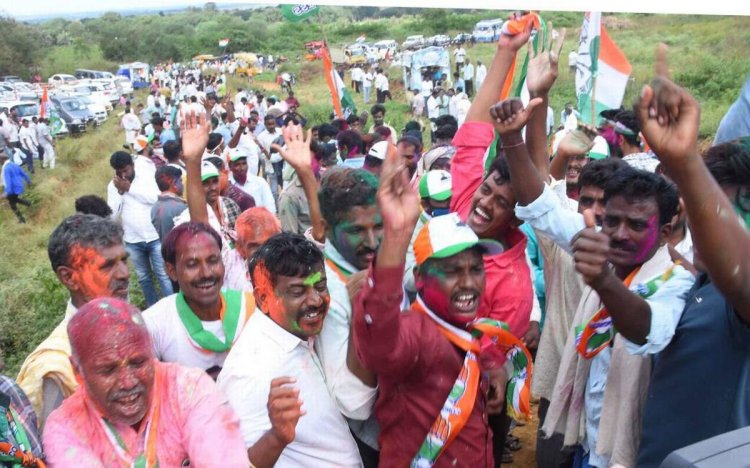Bypoll Verdict a Mixed Bag
Asia News Agency

The results of the bypolls in three Loka Sabha and 29 Assembly seats across 13 States and one Union Territory are a mixed bag for the BJP and the Congress.
BJP losses
In Himachal Pradesh, where it rules, the BJP lost a Lok Sabha seat and three Assembly seats to the Congress; but it made gains in Madhya Pradesh, where it displaced the Congress in two Assembly seats while retaining a Lok Sabha seat and an Assembly seat. In Assam, it won all five Assembly seats along with a regional ally, displacing the Congress in one. In Karnataka, the BJP faced a setback in the home district of Chief Minister Basavaraj Bommai.
In Haryana, Indian National Lok Dal (INLD) retained the Ellenabad Assembly seat. The victory offers a ray of hope to the INLD, which has been reduced to a fringe player in the state. Resentment against the BJP-led state government and the prolonged unrest over the three Central farm laws seem to have influenced the result.
The ruling party in West Bengal, the TMC, got a huge endorsement as it won huge victories in four Assembly seats, while the TRS, despite using all levers of power in Telangana, faced a defeat in the lone Assembly seat.
However, the victory in Telangana would be most encouraging for the BJP, as it defeated the ruling TRS.
Himachal Pradesh results shock BJP
Harish K. Thakur (Professor and Chairman of the Department of Political Science, Himachal Pradesh University, Shimla) says the results in Himachal Pradesh results “have shocked the BJP,” and that the Congress’s sweep of all four seats “went against popular expectations. What was more alarming was that the Congress had increased its vote share to 48.9% in the three Assembly seats against a meagre 28.1% of the BJP……
“It has been a characteristic of the State for decades now that after a certain Government completes three to four years, an anti-incumbency factor comes to the fore and a formal changeover takes place. Factors like an anti-incumbency mood, failure to meet promises, ineffective leadership and the economic slowdown due to the COVID-19 pandemic had a significant role in the current development. Rising oil prices and the consequent inflation acted as the final nail in the coffin for the BJP……
“The results are also a warning to the central leadership since BJP national president J.P. Nadda and Union Minster Anurag Thakur hail from the State….”
These elections, says Thankur “are a precursor to the Assembly election in 2022.”
The verdict in Himachal and Haryana, writes The Tribune “is at variance with the general trend in most other states, where the ruling party/alliance fared well in the byelections. The BJP and its allies gained ground in Assam and other northeastern states, while the Trinamool Congress swept the board in West Bengal. The Congress came up trumps in Rajasthan, even as the BJP had the upper hand in Madhya Pradesh. On the whole, it’s a mixed bag of results that hasn’t given the BJP much to gloat over.”
Reading too much into bypoll results is fraught with risks
But reading too much into bypoll results is fraught with risks, but some broad points are noteworthy, writes The Hindu. “Taken together, the results show that the Opposition is alive and kicking, but still devoid of a national narrative, programme or leadership. This set of byelections may not signal any consequential change in the national mood — H.P., which gave a drubbing to the BJP, has only four Lok Sabha seats, while in Bihar, BJP ally, the JD(U), retained both Assembly seats. The polls show that leadership at the State-level matters, and this may be bad news for the BJP that has increasingly centralised power and sought to undermine strong regional leaders. In Karnataka, B.S. Yediyurappa’s removal as CM appears to have come with a cost; in Assam, and other northeastern States, the imprint of Himanta Biswa Sarma is unmistakable in the impressive performance of the BJP; in Madhya Pradesh the credit for the party’s victories goes to CM Shivraj Singh Chouhan; and in Rajasthan the extent of its defeat can be attributed to the lack of regional leadership.”















